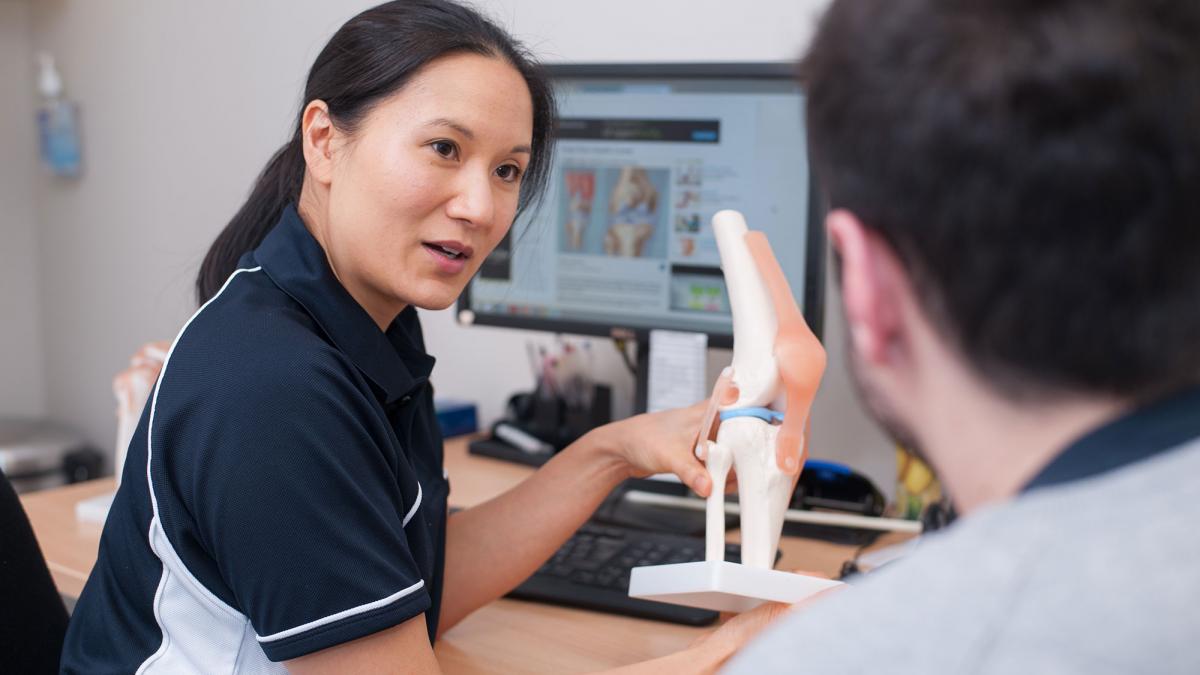The CSP is recommending a mix of in-person and remote consultations are best for future service delivery models based on the findings of a national evaluation of remote physiotherapy services.

The University of Manchester’s evaluation including a literature review, national survey and in-depth interviews with 12 service leads across the UK found that this hybrid delivery was not only safe, but was able to provide personalised care as it could be more flexible in responding to patient needs and preferences.
Time and cost savings were key factors in making remote consultations attractive to patients, the report found. However, although very high levels of satisfaction and positive experiences with remote consultations were reported by patients who were able to access them during the pandemic, they were not a ‘one-size fits all’ or long-term solution.
An understanding of a patient’s communication needs, resources and digital literacy – together with the nature of treatment - should determine whether they have a digital or on-site consultation, the report concluded.
The CSP commissioned the National Evaluation of Remote Physiotherapy Services in 2020 after all non-essential in- person physiotherapy stopped and moved to remote service delivery.
It compared the benefits and challenges of in-person and remote physiotherapy to determine how physiotherapy services can be equitable and effective for patients while making the best use of resources.
And though the report showed overwhelming support for this option from patients who chose remote consultations, people still expressed a preference for some in-person consultations if there was no risk of catching Covid.
There was no evidence to show cost savings from the digital switch, either, because none of the 1,620 survey respondents had gathered data comparing the cost of remote and in person physiotherapy.
The report concluded that people should be given the choice to receive physiotherapy in person, remotely or a combination of both.
However, this must be based on shared decision making, taking into account a person’s needs, their communication needs and their ability to access online healthcare.
Based on the findings, the CSP do not recommend an ideal ratio of remote/in-person, instead saying that it should be based on the patient population, individual need and available local resources.
Lead researcher Helen Hawley-Hague said: ‘Our evaluation of remote physiotherapy during the pandemic provided a very mixed picture around the success of remote physiotherapy.
‘There were both great advantages to delivering remotely such as increased access to physiotherapy for some patients and a reduction in travel, but equally great challenges in terms of adequate connectivity and access for others.
‘Remote methods of delivering physiotherapy should be an important part of a health professional’s toolkit and should be utilised where it can enhance treatment based on a person-centred approach to decision making.’
Rachel Newton, Head of Policy at the CSP, said: ‘Person-centred care means being responsive to patient needs – whether their preference is for remote or in-person consultations, or combination of the two.
‘The CSP has long supported the expansion of patient choice with new digital options that can save people time and money, and for some people help make services easier to access.
‘At the same time we recognise that for some people, in some situations, in-person services will be the best option.
‘It is also critical to ensure that those without internet access or help to navigate online healthcare are not missing out on essential services.’
Number of subscribers: 2